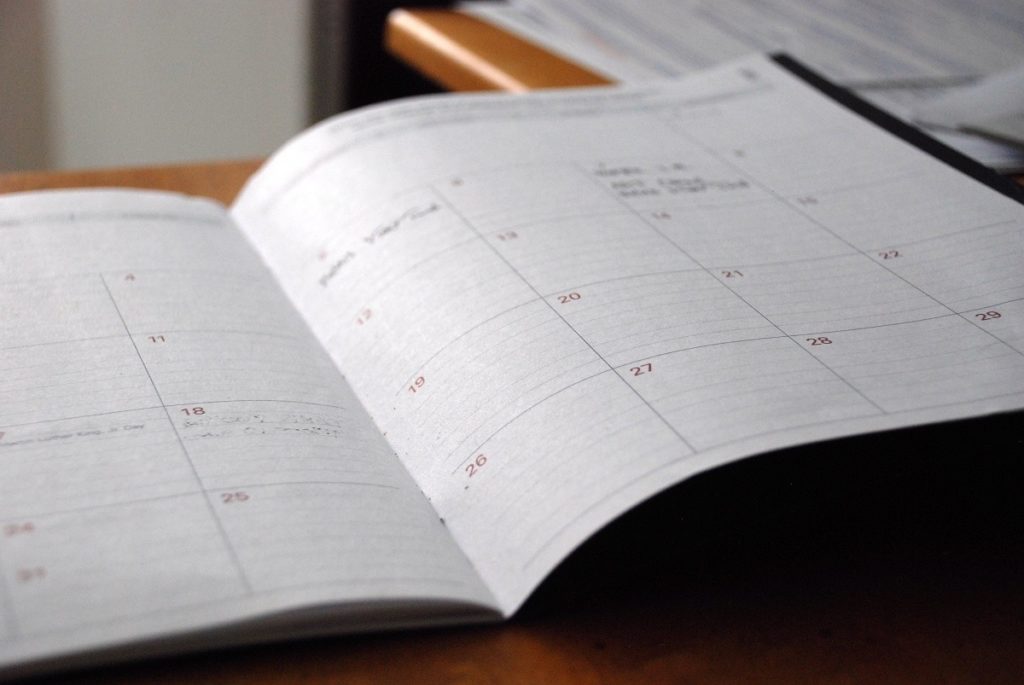
The Preparing for Exams series was first posted in 2017. Each year now we update the posts and repost them as exams approach. Let’s face it, the rules for preparing for exams don’t really change that much over time.
In Part 1 of the Preparing for Exams series I talked about exam anxiety, and suggested that leading into exams, you look to tidy up your lifestyle, as well as implement some regular relaxation or mindfulness practice. In today’s post I wanted to shift gears a bit and focus on how best to study.
A lot of students find themselves in university having studied a lot, but not necessarily having being taught how to study. Similarly, educators may have done a lot of learning themselves, but not been instructed on how best to help students learn.
In today’s post, we are going to explore some common sense and evidence-based tips for maximising your study time.

Setting up a good study space
So this bit is more common sense than science, but here goes:
DO – minimise distracting noise, minimise distractions (mobile, email, internet, TV), have proper lighting, maintain a cool temperature, create plenty of room to lay stuff out, work at a desk with straight backed chair or standing desk, have a space where you can talk out loud.
DON’T – use your ‘man cave’ with Playstation, TV and stereo as study space, study in bed, leave your mobile phone on, or study with that rich guy who doesn’t care what grades he gets.
People differ in terms of how much noise they can tolerate during studying. Some people work well with music. Others don’t. I can fairly confidently say though that anyone who says “I’m pretty sure I can study with the radio and television on” is talking out their a%#e.

Time management
There are basically two main components to this one.
First you will need to map out what you have to study and the time you have to study it, so that everything you need to revise is allocated some time. This plan may be revised over time as you get a better sense of what you know and don’t know, as well as understanding how long it is taking to revise each section/topic. I call this your macro-schedule. The purpose of the macro-schedule is to ensure you have a full appreciation of what needs to be studied and the time left to do it. Keep in mind that a full-time student should be allocating 38-40 hours per week to their study, which is likely to increase during exam preparation time.
Second, you need a micro-schedule for each day showing your study times, eating times, allocated break times and rest times. I would suggest taking a 5-10 minute break every 45 minutes of study time, with longer breaks for good nutrition, some physical activity, and maybe even the occasional nap. Like your macro-schedule, this too might be revised over time as you get in the zone.
We do have a separate post on time management, but the two strategies above might be ample to get started.

Study techniques that work
So you’ve got a plan and a nice study space. You sit down with your notes, textbooks and handouts. What do you do now?
If you are me, you decide to go get a drink and eat something, play the guitar and watch Youtube implement some evidence-based study techniques. Try these ones.
Start with the right mindset
During the study period, wake up each day and visualise yourself having a successful and productive study day. Visualise sitting down in your study space, working through the topics of the day and feeling confident that you’ve memorised what you need. Elite athletes use a lot of visualisation of success. You are an elite study athlete. (Author note: I wake up each day and visualise myself looking like Chris Hemsworth, but to date this has not eventuated. I’m not suggesting visualisation doesn’t work, but pick realistic visions).
Once you’ve settled down in your study space – remind yourself about growth versus fixed mindsets (which I talked about here). The basic idea is that intelligence or innate ability is not the key to success, rather it is hard work and perseverance. This is important when studying because when it gets difficult, it is tempting to say to yourself “I can’t do this, I am not smart enough’ which leads to anxiety and hopelessness. At these times, remind yourself that you can do it and that it is your work ethic that counts most, not your intelligence.
In terms of setting goals, it is common to find students setting ‘performance goals’ – e.g. pass the topic, get a HD, not fall off my chair in the exam, be better than that idiot in my class. These are ok, but in terms of focusing your study, it can be better to set more immediate ‘mastery goals’ which are content based – e.g. “today I want to learn all about the different areas of the brain”. Mastery goals help you refocus on the content and your memory and understanding of that content.
Finally, when the inevitable does happen and you find yourself distracted with other things (food, playing with the dog, trying to learn to juggle, Netflix), be kind when reminding yourself to get back to study. Procrastination is very common and self-forgiveness is important in not catastrophising when it happens. Simply say to yourself “Ok Gareth, you’ve gone a bit off track, lets get back to the books buddy” and gently and kindly lead yourself back to your study space (ps. don’t call yourself Gareth, if that is not your name).
Re-reading
So I am going to assume that you’ve read the required readings (e.g. text books, handouts) at least once. If not, you need to at least do that. But how many times should you re-read the material? Well the research suggests that 2 or 3 re-readings helps with retention, but after that the gains are minimal. You should then be looking at using one of the additional strategies below. Also note that highlighting or underlining content as you read is, by itself, of little worth, unless you incorporate one of the strategies below (e.g. highlighted sections become flash cards).
Note-taking
The memorisation of texts and lectures both improve with note-taking, but similar to re-reading, repeated note-taking of the same content delivers diminishing returns over time. Reviewing your notes regularly over time is helpful – see distributed practice. When taking notes, try summarising the content in your own words, rather than simply coping what you’ve read. It is the active process of summarising your notes that is better for learning, than simply the process of taking the notes.
Rehearsing
Just like an actor preparing for a play, going over chunks of information or text that needs to be memorised requires rehearsal. Rehearsal is going over information again and again and again and again until you remember it. To maximise the effectiveness of rehearsal, remove distractions and say it out loud. You’ll feel like an idiot talking to yourself, but it is more effective.
Connecting information
Let’s say you spend Tuesday learning about the parts of the brain and then Wednesday trying to remember the most common psychological/behavioural disorders. Finding connections between these topics (e.g. the role of the amygdala in anxiety) can help you better learn both areas. Seeking and finding connections between different topics takes advantage of the fact that our brains are association machines. They love to build associations between different topics. Just for fun, try finding a way in your head to connect Dragons and Bertie Beetles. Related to this, we remember facts better when we understand the story behind them. Narratives help with memorisation. Its partly why mnemomics work so well.
Self-verbalising
I sucked at maths (don’t tell anyone). To help me, my teacher, instead of trying to get me to understand the underlying theory behind what I was doing, simply helped me verbalise the steps I needed to take to solve specific problems. Self-verbalising essentially means saying out loud how it is you are solving a problem. Students who self-verbalise whilst solving problems typically perform better when confronting those problems again in the future. Remember when you had to learn to drive a car, and initially you had to say out loud each of the steps as you did it – SEAT BELT, MIRRORS, START ENGINE, PUMPING TUNES, CHECK MIRRORS, REV THAT FAT EXHAUST, INDICATOR etc etc. Verbalising those steps helped them become automatic.
Justifying
This one works well if you are studying with a friend. One of you solves a problem and then outlines to the other how they went about it, justifying their method. Justifying your method requires that you have a clear understanding of how you solved a problem. The process also has feedback built into it in that the other person can check your logic.
Don’t multitask
If your friend tells you they are a multi-tasking genius, tell them they are full of shit. As far as the brain is concerned, it is not doing two things at the ‘same time’, it is actually rapidly switching between the two tasks. In the process it activates ‘secondary less reliable memory networks within the brain‘. Pick a single task and follow it through.
Retrieval practice
A lot of the time we focus on trying to force information into our heads, but it is really the process of trying to get that information back out that counts (particularly on exam day). To implement this strategy, while reading a text, you can cover the book and try describing the main ideas in your own words. This makes the reading process longer, but you are practising both memorisation and retrieval at the same time. Also check out my article about how retrieving stuff from your head 3 times is better than 1.
Self-testing/ Practise testing
So given that most people hate tests, it’s a little cruel that one of the most effective learning/studying techniques is self-testing/ practise testing. Essentially this is an extension on retrieval practice. This can be achieved by using flashcards, taking past exams, or studying with other students and asking each other questions. To get the most out of practice testing, focus on free recall (multiple choice or prompted recall are still useful), regular self-testing (preferably till items can be answered correctly more than once), and where feedback on whether your answer is right/wrong is available. Short frequent self-testing is better than long infrequent tests.
Distributed practice
This one is a little cruel to tell you, when you are just 2 weeks out from exams, but spaced regular practice/study is superior to massed practice (i.e. cramming). I should clarify though. You can achieve good results with massed practice (that is how I studied for my yr 12 Economics exam) but in terms of retaining the information for an extended period of time, you are best to study it repeatedly, with long periods of time between each repetition. Distributed practice (one of the most effective methods) works best when initiated at the start of a topic, so consider this a tip for next year 🙂 – Want to read a bit more on the topic? – try this.
Interleaved practice
This is an interesting one. Say you have 10 chapters of a book to cover in your revision. Some of us might work 1 chapter at a time, learn it, then move on to the next. There is some evidence however that alternating between the chapters might be just as, or more effective. It could operate by helping you draw connections between the different topics or distributing the practice of each chapter. Whilst the guidelines on exactly how to implement this strategy are a bit vague, just note that moving between chapters during a study day might not be a bad idea, as long as within each chapter you are using some of the other strategies outlined above.
Elaborative interrogation
I like this one. This strategy requires you to get in touch with you inner 4 year-old and constantly ask “why?”. Say you read something that says “Facebook is the most popular social media site in the world”. You can remember that fact alone, but interrogating it further will help lock it in. “Why is it the most popular social media site?” Each new piece of information you gain, as you interrogate the original fact, helps you remember that initial fact more effectively.
Learn one, do one, teach one
I stole this from a friend of mine. The basic idea is that for any process you need to learn, if you can progress from learning it to teaching it, you will have strongly cemented the process in your head. For example, me learning about evidence-based study tips and then writing about it for you, has definitely helped me remember them better.
Embrace errors
The old saying ‘learn from your mistakes’ is evidence-based it appears. There is a tendency, when we make mistakes, to try and quickly move on. However analysing mistakes and errors helps us both learn stuff that we are finding difficult, but it also changes how we approach learning, in that we become more fearless, curious and accepting. So when you are self-testing, or revising with a friend, take the time to analyse the items you get wrong. You’ll learn more about the topic at hand, but also something about yourself (#personalgrowth).
Things to avoid (which naturally means we all do them)
Cramming (massed practice)
Let’s be honest, we all do this. We leave all the readings and learning to the last minute and try to do it in one caffeine fuelled blob. Look – sometimes it can be effective if you just need to retain the information for a very short period of time, but overall it is a poor method for retaining material over a longer period, and remember, beyond exams, you will need some of this material for your actual job. You can’t really afford to lose it from your brain, the second
the exam is finished.
Multi-task
There is no such thing as multi-tasking. If you believe you can multi-task, then really the only talent you have is being able to switch quickly between tasks. Rapid switching between tasks consumes large amounts of mental energy and impairs performance on all tasks. Just study one thing at a time. Close other tabs/apps that are likely to encourage you to try multi-tasking. The only exception to this rule I might entertain is if you are using social media to enhance your learning – e.g. you are posting on social media the key concepts you are learning.
Repeated reading
After reading something a couple of times, any further reading adds little to your learning. It makes you ‘feel’ like you are learning, but it isn’t benefiting you much. You have to introduce active strategies (summarising, flash cards, self-testing) after a couple of reads.
Embrace the social
Studying by yourself all the time can be lonely and boring (although admittedly I prefer studying alone). Some people benefit from the energy of occasionally studying with friends, which can make it more enjoyable, but also offers up learning hacks that are difficult to do on your own.
Find the smart people and start a study group
Generally you can identify the smart students. They ask interesting questions during lectures or tutorials, they seem to know the material and they appear a bit neurotic. Start a study group with these people. Not only will they push you to be better, you will learn specific
techniques and ideas for how they learn.
Practise justifying and teaching concepts to a fellow student
The level of understanding required to successfully teach a concept to a fellow student suggests the material is well learned. In a study group, each select a topic or concept ahead of time, and then when you meet, try to teach each other those concepts.
Get someone else to test you on your flash cards
When they are taken out of your hands, its much harder to cheat.
Try a virtual study buddy
I’ve not used these services before, but I do have friends on messaging and we coordinate our working times together, occasionally sharing what we are doing and reinforcing each other’s focus and concentration – https://www.focusmate.com/ . Make sure it doesn’t degenerate into just an online chat in which case you are just both procrastinating.
Final words
Don’t feel bad if you’ve not come across these study techniques before. I was never taught how to study. I was just lucky that I had a decent memory, and tended to take a lot of notes. I hope you can take some of these techniques and enhance your current study methods. If you’d like to learn more about these techniques there is a cool website to subscribe to (http://www.learningscientists.org/). Feel free to get in contact with me if you’d like more resources like that. Also, you can read our guide on Evidence-Based Study Tips in which we have a few more tips and useful resources.
In Part 3 of the Preparing for Exams series, we look at common writing/study traps and how to deal with them.
Want to comment on this article, or ask me a question about the health and well-being services available to you as a student? Feel free to comment below, find me on Twitter or email me (gareth.furber@flinders.edu.au)

